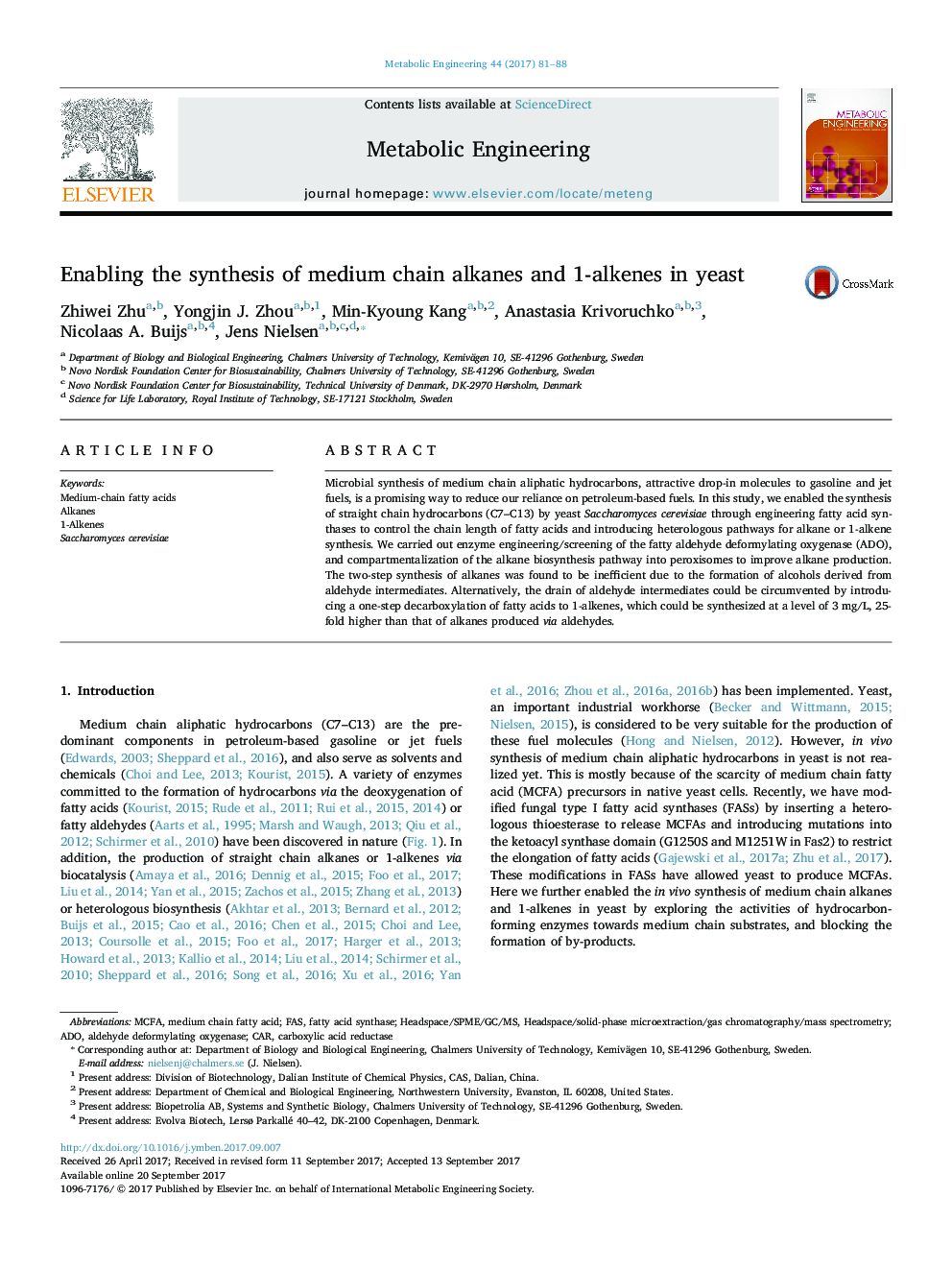| کد مقاله | کد نشریه | سال انتشار | مقاله انگلیسی | نسخه تمام متن |
|---|---|---|---|---|
| 6452633 | 1418335 | 2017 | 8 صفحه PDF | دانلود رایگان |
- Medium chain fatty acids were obtained by engineering fungal fatty acid synthases.
- Medium chain alkanes were produced by expressing an alkane biosynthesis pathway.
- Among 13 candidates, the ADO from Thermosynechococcus elongatus showed superior activity.
- Targeting of the alkane-forming pathway into peroxisomes improved alkane production.
- Medium chain 1-alkenes were synthesized by expressing UndA decarboxylase.
Microbial synthesis of medium chain aliphatic hydrocarbons, attractive drop-in molecules to gasoline and jet fuels, is a promising way to reduce our reliance on petroleum-based fuels. In this study, we enabled the synthesis of straight chain hydrocarbons (C7-C13) by yeast Saccharomyces cerevisiae through engineering fatty acid synthases to control the chain length of fatty acids and introducing heterologous pathways for alkane or 1-alkene synthesis. We carried out enzyme engineering/screening of the fatty aldehyde deformylating oxygenase (ADO), and compartmentalization of the alkane biosynthesis pathway into peroxisomes to improve alkane production. The two-step synthesis of alkanes was found to be inefficient due to the formation of alcohols derived from aldehyde intermediates. Alternatively, the drain of aldehyde intermediates could be circumvented by introducing a one-step decarboxylation of fatty acids to 1-alkenes, which could be synthesized at a level of 3Â mg/L, 25-fold higher than that of alkanes produced via aldehydes.
180
Journal: Metabolic Engineering - Volume 44, November 2017, Pages 81-88
